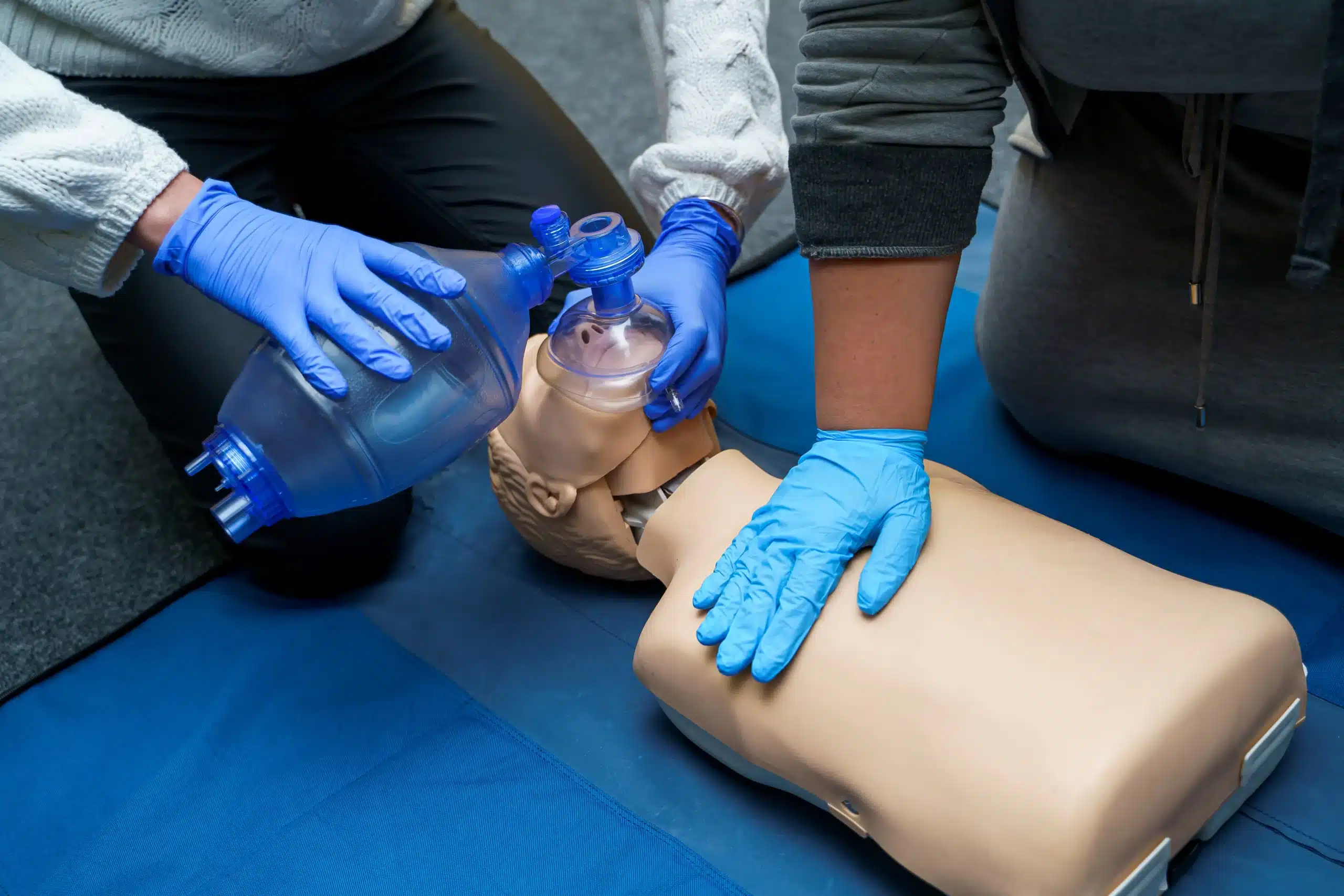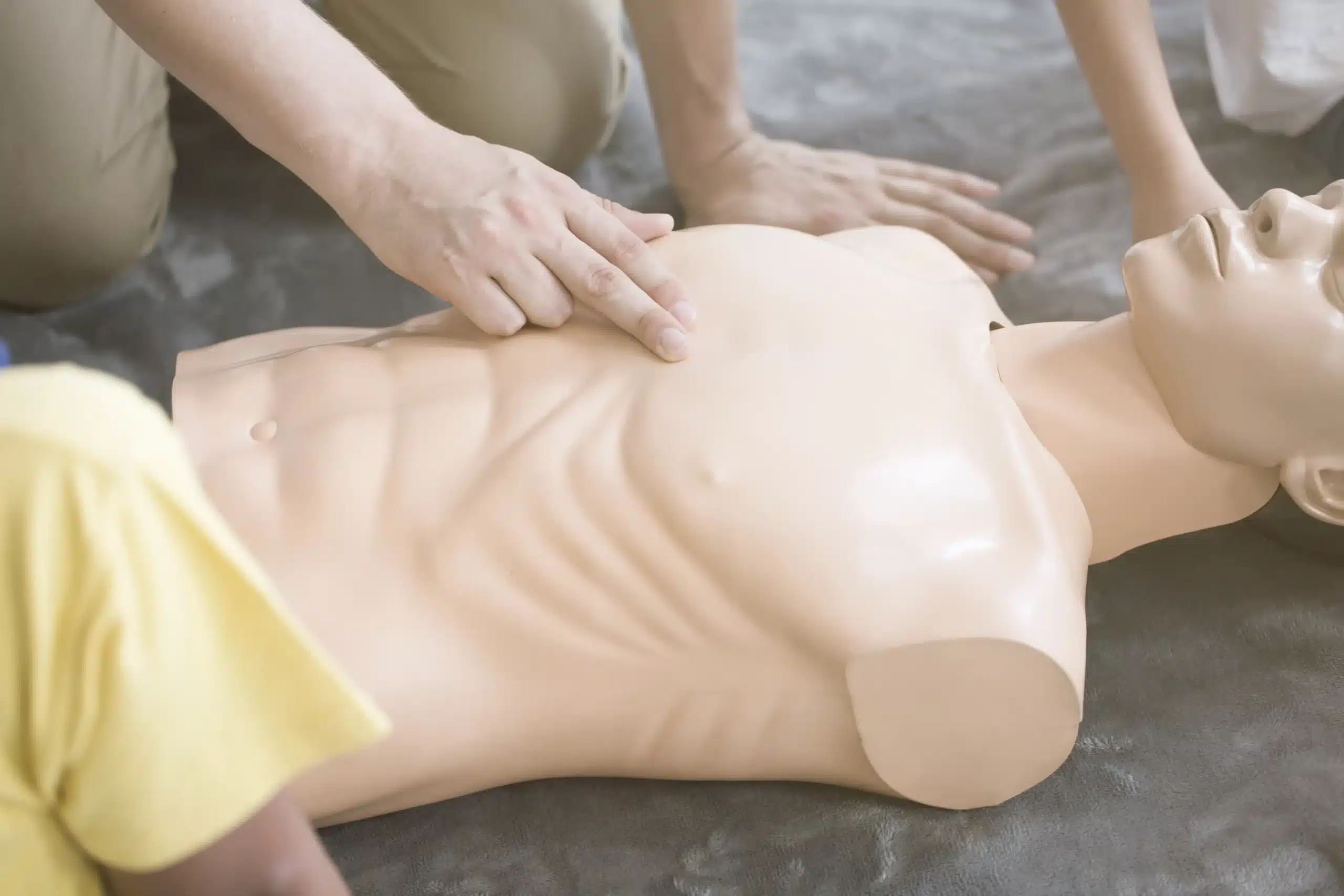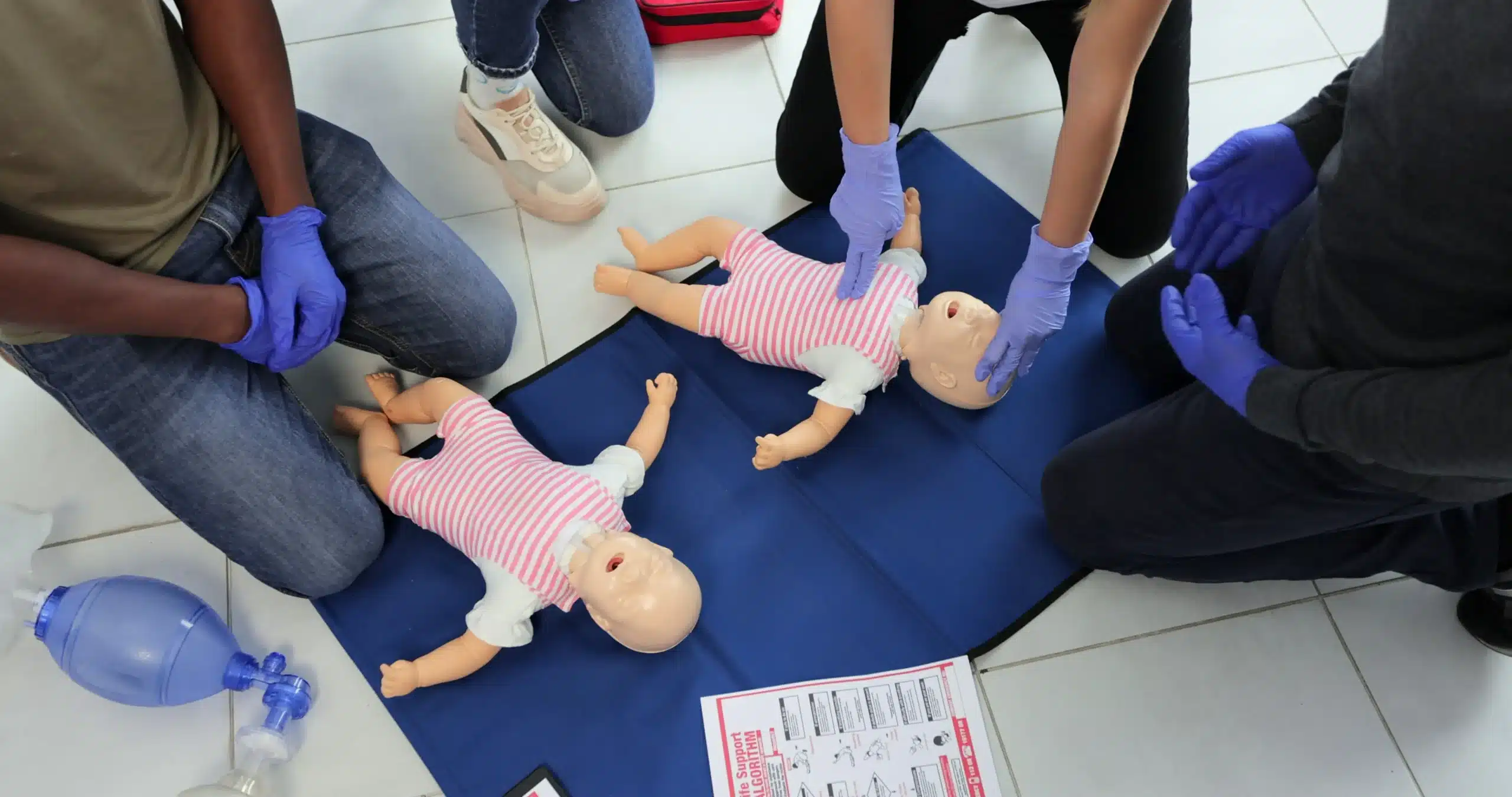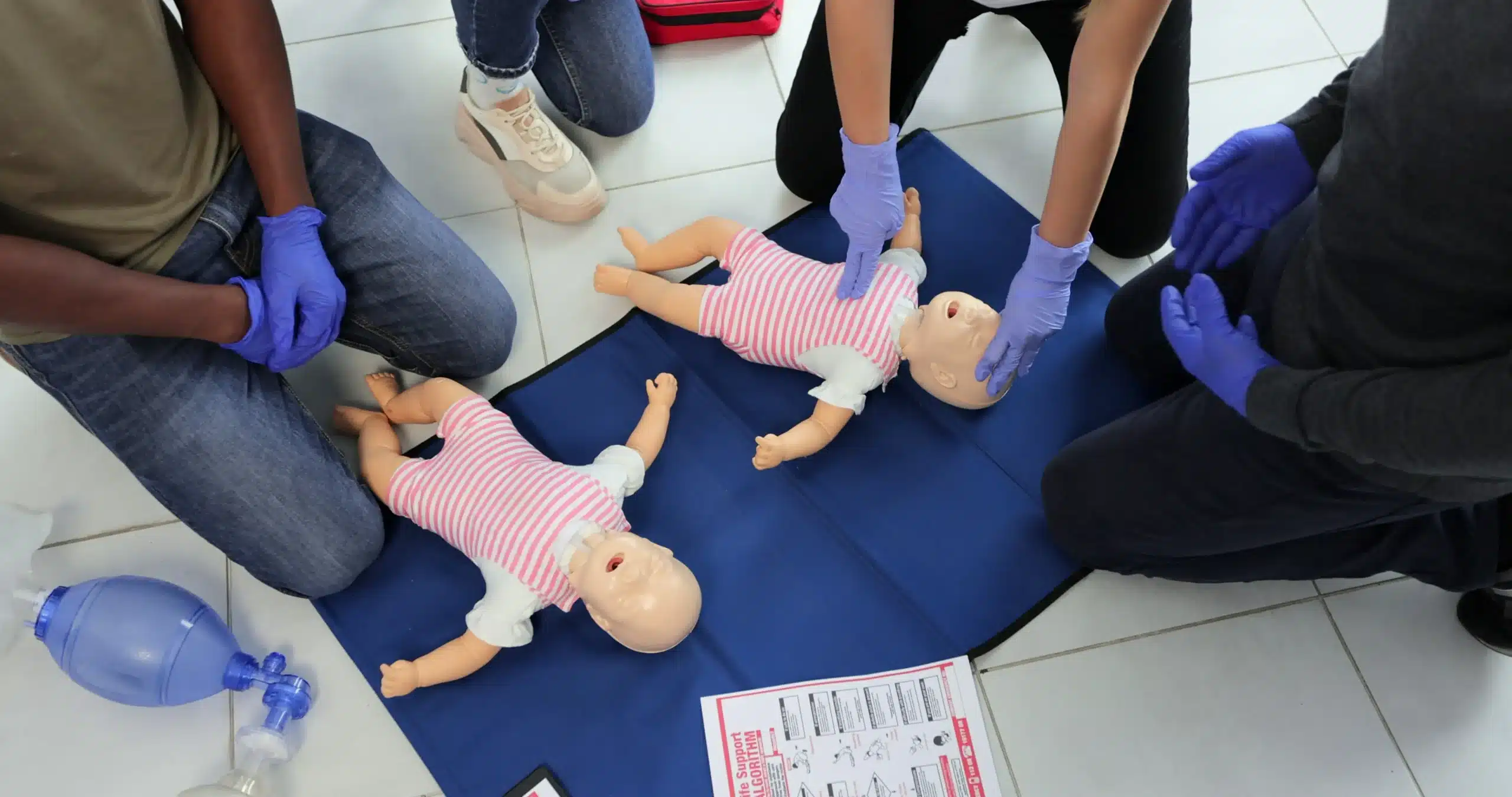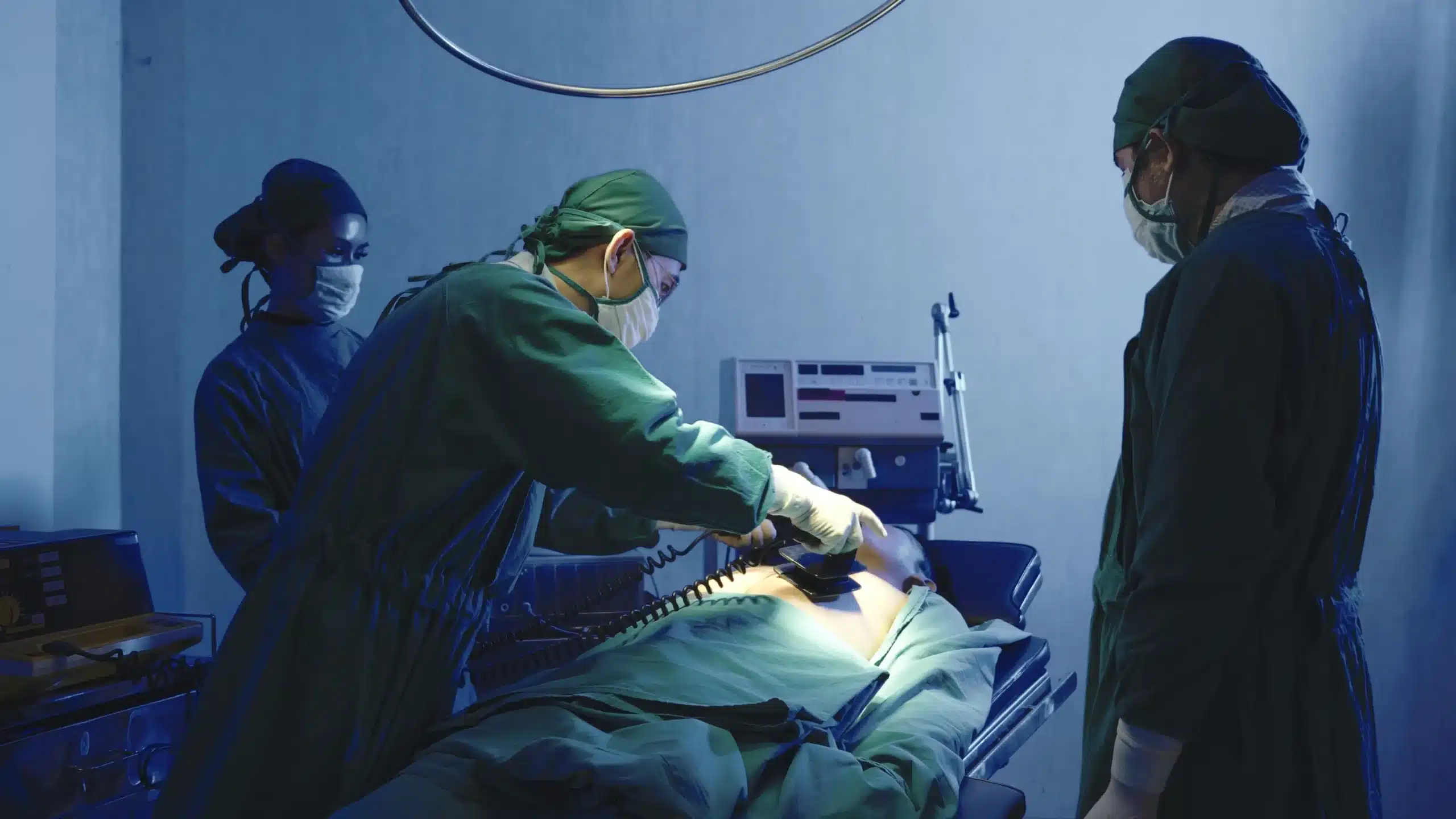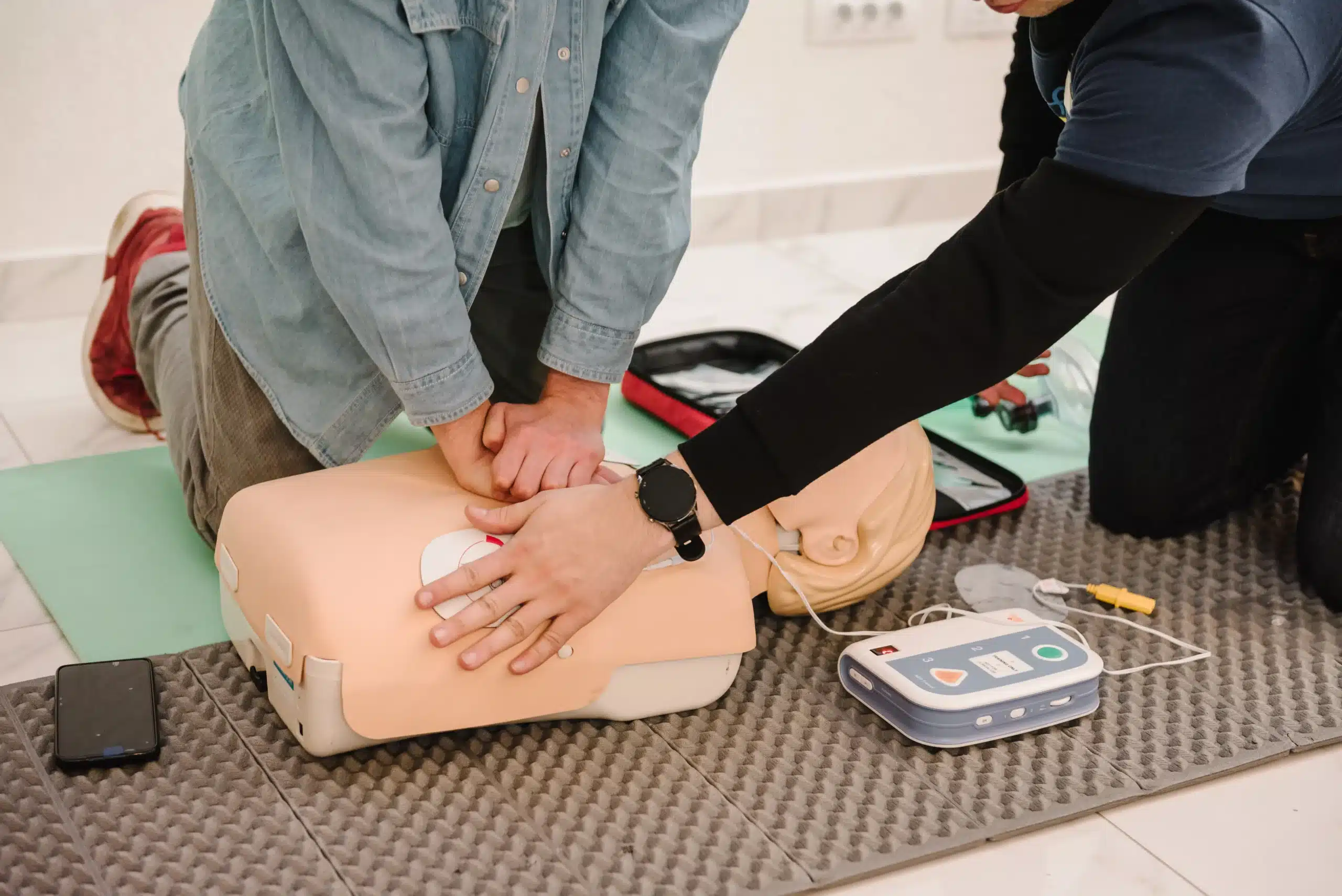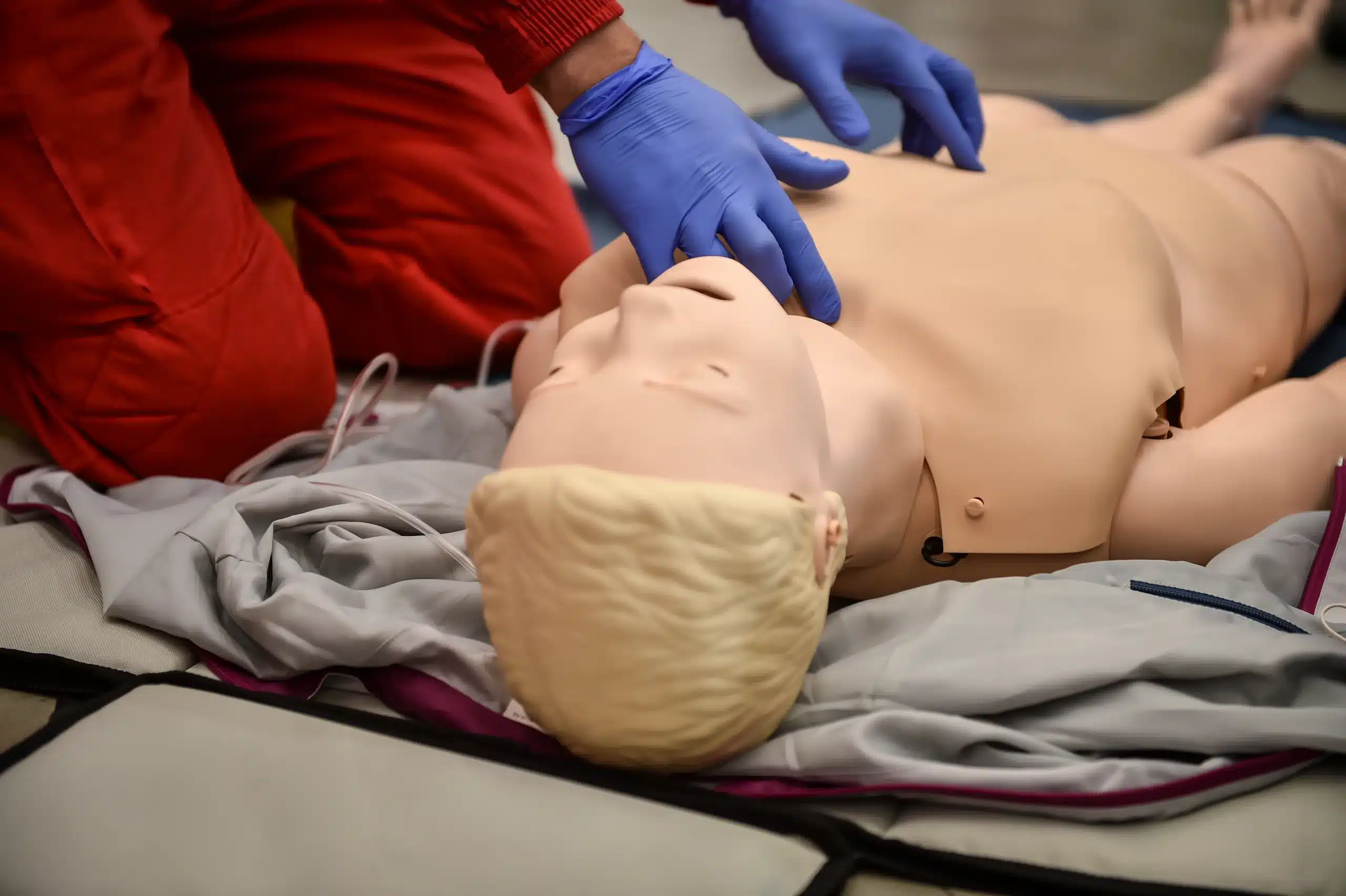In the vibrant community of Berkeley, being prepared for medical emergencies is a valuable asset. CPR renewal in Berkeley is a straightforward process that ensures you’re equipped to handle such situations. This guide will provide a comprehensive overview of CPR renewal in Berkeley, including where to find certified courses, what to expect during training, and how to maintain your skills after certification. We’ll also discuss the various types of CPR certifications available and help you choose the right one for your needs. Whether you’re a healthcare provider, a student, or a concerned citizen, this guide will empower you to renew your CPR certification and contribute to a safer community.
Key Takeaways
- Stay current with CPR: Regularly renewing your certification ensures you’re prepared and confident to respond effectively in emergencies. Explore convenient options like blended learning or shorter refresher courses to fit your schedule.
- Find the right course for you: Consider factors like cost, location, and schedule when selecting a CPR renewal class. Contact providers directly to discuss your needs and confirm certification validity.
- Maintain your skills through practice: Regularly practicing CPR techniques and staying informed about guideline updates are crucial for maintaining proficiency. Explore local resources and consider group training for a supportive learning experience.
What is CPR Renewal in Berkeley?
CPR renewal in Berkeley simply means staying up-to-date on your CPR skills and knowledge. CPR certifications are typically valid for two years. To keep your certification current, you’ll need to renew it. It’s smart to begin the renewal process about a month before your certification expires to avoid retaking the entire course.
Depending on the training provider and your workplace requirements, renewal might involve a shorter refresher course or a full course. Several organizations in Berkeley offer CPR renewal courses, including those accredited by the American Heart Association. These courses may be available in different formats, such as online learning or traditional classroom sessions.
Keep in mind that some employers have specific rules about how often you need to renew your CPR certification, and online certifications might not meet all workplace standards. When choosing a CPR renewal course in Berkeley, select a program from a reliable provider that fits your professional needs. Group discounts may also be available.
Find Top CPR Renewal Classes in Berkeley
Finding the right CPR renewal class in Berkeley depends on your schedule, budget, and learning style. Here are a few places to start your search:
Safety Training Seminars
Safety Training Seminars offers a range of American Heart Association courses, including CPR, First Aid, and BLS. They frequently hold classes in nearby Alameda, making them a convenient option for Berkeley residents. Check their website for a schedule of upcoming courses and pricing. They are known for competitive rates and convenient class times.
American Red Cross
The American Red Cross is a trusted provider of CPR and First Aid training across the country. Their Berkeley location offers various class formats, including in-person, online, and blended learning. This allows you to choose a learning style that fits your needs.
CPR Education
CPR Education is another option for Berkeley residents looking for CPR certification. They emphasize high-quality instruction designed to give you the confidence to use your skills in a real emergency. Visit their website for upcoming courses and registration details.
Berkeley Fire Department
Your local fire department is often a good resource for CPR training. The Berkeley Fire Department may offer community CPR courses. Check their website or contact them for information about upcoming training.
UC Berkeley University Health Services
If you’re a student or staff member at UC Berkeley, University Health Services might offer CPR training. Visit their website or contact them directly for information on available health and safety programs.
Explore CPR Renewal Costs & Value
CPR renewal doesn’t have to break the bank. Understanding typical costs and exploring ways to save can help you find a course that fits your budget. Let’s explore how to get the best value.
Average Price Range
CPR renewal courses in Berkeley have varying prices, so research is key. You can find options starting around $105, like those offered by Safety Training Seminars, a common price point for many local providers. Knowing the average gives you a good starting point for comparison.
Find Discounts and Promotions
Many CPR training providers offer discounts and promotions, so be on the lookout. For example, some providers, including Safety Training Seminars, will come to your workplace for on-site training. This can be a great way to save, especially for groups.
Get Group Training
Renewing with colleagues or friends? Consider a group CPR training class. Group training often comes with discounts, making it a smart option for teams and organizations. Plus, learning together can create a more supportive and engaging learning experience. Safety Training Seminars offers these group discounts.
Secure Low Price Guarantees
Look for providers that offer a low-price guarantee. This gives you peace of mind, ensuring you’re getting good value for high-quality training. Many providers in Alameda County offer these guarantees. Check with individual providers, like Berkeley CPR Classes, to see if they offer this.
Choose Class Formats & Duration
Finding the right CPR class means understanding the different formats and time commitments involved. Let’s break down the options so you can choose what works best for your schedule and learning style.
In-Person Classes
In-person CPR classes offer hands-on training, essential for mastering these life-saving techniques. You’ll work directly with an instructor and practice on mannequins, getting immediate feedback and building confidence. These classes typically earn you a two-year certification, meeting workplace requirements like OSHA standards. This format is great for people who thrive on direct interaction and hands-on learning.
Renew Online
Online CPR renewal courses offer a convenient way to update your certification from anywhere with an internet connection. You can learn at your own pace and on your own time. However, be aware that online-only courses may not meet all workplace requirements. OSHA doesn’t accept online-only courses for workplace certification. Check with your employer to ensure they accept online renewals before choosing this option. If your workplace requires hands-on training, a blended learning approach or in-person class might be a better fit.
Blend Learning Approaches
Blended learning combines online learning with in-person skills practice. Programs like the Resuscitation Quality Improvement (RQI) program let you study online at your own speed and then attend a shorter in-person session to demonstrate your skills and get feedback. This format offers flexibility and efficiency, making it a popular choice.
Review Typical Class Lengths
CPR/AED courses vary in length, usually lasting between two and four hours depending on the class. This flexibility helps you find a course that accommodates your schedule. For specific course lengths and schedules, check with your chosen training provider, such as the Red Cross. When considering the time commitment, factor in the material’s depth, the certification level, and any additional modules.
Renew Your CPR Certification: Requirements & Process
Keeping your CPR skills sharp is essential for responding effectively in emergencies. This section covers everything you need to know about renewing your CPR certification in Berkeley.
How Often Should You Renew?
CPR certifications are typically valid for two years. After this period, you’ll need to renew your certification to stay current with the latest guidelines and maintain your credentials. Some employers or organizations may require annual renewal, so it’s always a good idea to check their specific requirements. For more information on CPR certification validity, visit CPR1.
Prerequisites for Renewal Classes
Before signing up for a renewal course, make sure you meet the prerequisites. Most renewal courses require a current or recently expired CPR certification. Keep in mind that online-only CPR certifications may not satisfy all workplace standards. For instance, OSHA generally doesn’t accept online courses for workplace certification. It’s best to confirm accepted certifications with your employer or relevant regulatory bodies. CPR1 offers further information on CPR certification requirements.
Steps to Renew Your Certification
Renewing your CPR certification involves completing a renewal course and passing an exam to demonstrate your updated skills and knowledge. The renewal process itself can vary. Some providers offer a shorter review course, while others require a full course. Contact Safety Training Seminars at alamedacprclasses.com or other providers like the American Red Cross to understand their specific renewal process. They can guide you through the steps and help you choose the right course.
What Happens in a CPR Renewal Course?
A CPR renewal course isn’t about starting from scratch. It’s designed to refresh your existing skills, update your knowledge, and ensure you’re ready to respond effectively in an emergency. Here’s what you can typically expect:
Review Skills and Practice
CPR skills can fade over time, which is why renewal is so important. You’ll begin by reviewing the core techniques of CPR, including chest compressions, rescue breaths, and how to recognize the signs of a cardiac arrest. Expect opportunities to practice these skills and ask questions to solidify your understanding. This review helps reinforce muscle memory and build your confidence.
Learn Updated CPR Guidelines
Medical best practices are constantly evolving, and CPR guidelines are no exception. Your renewal course will cover any updates to these guidelines, ensuring you’re using the most effective techniques. Staying current with these CPR techniques is crucial for providing the best possible care.
Get Hands-On Training
In-person CPR renewal courses provide essential hands-on training using mannequins. This practical experience allows you to apply the updated guidelines and refine your skills in a safe and controlled environment. This hands-on component is key to translating your knowledge into action.
Complete Assessment & Get Certified
To ensure you’ve mastered the necessary skills, CPR renewal courses typically include an assessment. This might involve demonstrating your CPR technique on a mannequin and answering questions about the latest guidelines. Once you successfully complete the assessment, you’ll receive your updated CPR certification, valid for another two years. The renewal process itself might be a full course or an abbreviated review, depending on the provider and your specific needs.
Why Stay Current with CPR Certification?
Knowing CPR is a powerful skill. Staying up-to-date with your certification ensures you’re always ready to help in a crisis. It’s about more than just checking a box; it’s about being confident and prepared to make a real difference.
Prepare Yourself & Build Confidence
CPR skills can fade over time. Regular CPR renewal keeps your skills sharp, allowing you to respond effectively under pressure. When an emergency arises, you’ll be able to act quickly and confidently, knowing you have the most current training. This confidence can be invaluable, not just for yourself but for those around you.
Advance Your Career
In many professions, particularly healthcare, maintaining a current CPR certification is essential. It shows employers your dedication to patient safety and professional development. For fields like childcare, having current certification is often a requirement. Check out our EMSA Child Care Health & Safety training for more information. It can also open doors to new opportunities and give you a competitive edge.
Make a Community Impact
Learning and maintaining CPR skills contributes to a safer community. When more people are trained, it creates a network of potential lifesavers. Consider taking a group CPR class with friends, family, or colleagues. It’s a great way to learn together and strengthen your community.
Improve Survival Rates
CPR can dramatically increase the chances of survival during a cardiac arrest. Knowing how to perform CPR and having the confidence to do so can mean the difference between life and death. Since most out-of-hospital cardiac arrests occur at home, having current CPR training is crucial for protecting your loved ones. Learn more about our low price guarantee and get certified today.
Select the Right CPR Renewal Class
Choosing the right CPR renewal class involves understanding your needs and finding a program that fits your schedule and budget. Here’s a breakdown of factors to consider, questions to ask, and how to match a class type to your specific requirements.
Factors to Consider
CPR certifications are typically valid for two years. Plan to renew your CPR certification within 30 days of the expiration date to avoid retaking the entire course. Some workplaces may require annual renewal, so check with your employer for specific guidelines. This proactive approach will save you time and ensure you maintain a current certification.
Questions to Ask Providers
Before committing to a class, ask potential providers if their certification meets workplace standards. For example, online-only CPR certifications may not satisfy all requirements; OSHA generally doesn’t accept them for workplace certification. Also, confirm whether the provider offers American Heart Association certification, which is widely recognized and accepted. Contacting providers directly to verify your certification status and explore renewal options is always recommended. This can clear up any confusion and help you make informed decisions.
Match Class Type to Your Needs
Consider your learning style and schedule when selecting a class format. Safety Training Seminars offers a variety of courses, including CPR, BLS, ACLS, PALS, and First Aid, giving you options to match your professional needs. If your schedule is tight, explore blended learning options that combine online coursework with in-person skills practice. Look for providers that prioritize convenience and affordability, such as those offering daily classes and a low-price guarantee. This ensures you can find a class that fits both your budget and availability.
Prepare for Your CPR Renewal Class
Getting ready for your CPR renewal class is straightforward. A little preparation beforehand helps you get the most out of your training.
What to Bring
While CPR renewal focuses on refreshing your skills, having a few essentials makes the experience smoother. Bring a notebook and pen to jot down notes, especially about updates to CPR guidelines. You’ll also want your driver’s license or other government-issued photo ID. Some providers, like those offering the Online CPR Course (HLTAID009), require a Unique Student Identifier (USI) number, so check with your chosen training center for their requirements. Comfortable clothing is also a good idea, as you’ll be actively participating in practice scenarios.
Maximize Your Training
Smart timing for your renewal can save you time. It’s best to renew your CPR certification within 30 days of its expiration. This often qualifies you for a shorter renewal course rather than retaking the full course. Even if your certification isn’t expiring soon, regularly reviewing CPR techniques is smart. Online resources and practice scenarios can help keep your skills fresh.
Post-Certification: Next Steps
CPR certifications are typically valid for two years. Mark your renewal date on your calendar so you don’t forget. Staying current with the latest CPR techniques is vital because medical practices change, and best practices are updated. Consider subscribing to relevant newsletters or following reputable organizations like the American Heart Association for updates. Your preparedness could one day make all the difference.
Maintain Your CPR Skills
After earning your CPR certification, regular practice and staying informed about the latest guidelines are key to maintaining your life-saving skills. It’s like any other skill—consistent upkeep is crucial for effective performance in a real emergency.
Practice Techniques
CPR skills can fade over time, which is why renewal is so important. Regularly practicing the techniques you learned in your CPR certification course will help you stay sharp and react confidently if a real emergency arises. Set aside time each month to review and rehearse the core steps of CPR, including chest compressions, rescue breaths, and how to recognize the signs of cardiac arrest. Even practicing on a pillow or mannequin can significantly reinforce your muscle memory and maintain your proficiency.
Stay Informed About CPR Updates
CPR guidelines are periodically updated to reflect the latest scientific research and best practices. Staying informed about these updates ensures you’re providing the most effective care possible. Subscribe to newsletters from reputable organizations like the American Heart Association to receive notifications about any changes. Knowing the current CPR techniques can significantly increase the chances of survival during a cardiac arrest.
Find Refresher Resources in Berkeley
Conveniently located in Alameda, Safety Training Seminars offers a range of American Heart Association courses, including CPR, BLS, ACLS, PALS, and First Aid. They provide flexible scheduling options, including group discounts, making it easier to fit refresher training into your busy schedule. You can also explore additional resources and training opportunities through local organizations like the Berkeley Fire Department or UC Berkeley University Health Services. Staying proactive about maintaining your CPR skills is an investment in yourself and your community.
Related Articles
- CPR Renewal in Alameda: Find Classes & Costs – Alameda CPR Classes
- Online CPR Classes in Berkeley: Your Complete Guide – Alameda CPR Classes
- NRP Certification Berkeley: Your Complete Guide – Alameda CPR Classes
- CPR Certification in Alameda: Your Comprehensive Guide – Alameda CPR Classes
- CPR Training in Oakland: Your Guide to Certification – Alameda CPR Classes
Frequently Asked Questions
How often do I need to renew my CPR certification? CPR certifications typically expire after two years. It’s a good idea to check with your employer or certifying organization, as some may have specific renewal requirements. Starting the renewal process about a month before your certification expires is a smart way to avoid any gaps in your credentials.
What’s the difference between CPR renewal and taking the full course again? A renewal course is designed for those with a current or recently expired CPR certification. It’s typically shorter than the initial certification course and focuses on refreshing your skills and knowledge, including any updated guidelines. If your certification has been expired for a while, you might need to retake the full course.
Are online CPR renewal courses accepted everywhere? While online CPR renewal courses offer convenience, they might not meet all workplace requirements. Some employers and regulatory bodies, like OSHA, may require in-person skills practice and assessment. It’s always best to check with your employer or the relevant organization to ensure the course you choose meets their standards.
Where can I find CPR renewal courses in Berkeley? Several organizations offer CPR renewal courses in and around Berkeley. Safety Training Seminars in nearby Alameda is a convenient option, providing various American Heart Association courses. The American Red Cross also offers training in Berkeley, with different learning formats available. Additionally, check with your local fire department, UC Berkeley University Health Services, or other community organizations for potential training opportunities.
How much does CPR renewal cost? The cost of CPR renewal varies depending on the provider and the type of course. You can typically find options starting around $105. Look for providers that offer discounts, such as group rates or promotions, to help you find a course that fits your budget. A low-price guarantee can also give you peace of mind.


